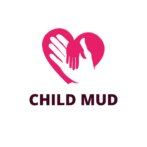Understanding the intricacies of child development can often feel like trying to decipher an ancient, cryptic language. But there’s no need to worry. Child development centers are here to decode the enigma. These institutions are the lighthouses guiding the ship of a child’s growth, illuminating the path towards their potential.
Through a mix of structured learning, play, and individual attention, these centers foster the holistic development of children. They’re not just about academics; they encompass social, emotional, and physical growth. Stay tuned as we delve deeper into the world of child development centers, their importance, and the pivotal role they play in shaping a child’s future.
Child Development Center
 A Child Development Center (CDC) is an institution focusing on bolstering a child’s overall growth, integrating educational progress, social skills, emotional well-being and physical development into one systematic whole. CDCs deploy resources nurturing every aspect of a child’s development, making them quintessential to a child’s future. Child Development Centers offer a variety of services to facilitate comprehensive growth for children. One principal provision centers around developmental screenings that help identify a child’s strengths and areas that require enhancement. These screenings guide the creation of individualized learning plans, illuminating pathways towards holistic growth. Additionally, CDCs often provide child-geared therapy services, including speech and language therapy, occupational therapy, and physical therapy. Mental health support, nutritional advice, and family support programs, including parenting workshops, are other common services that echo the inclusivity of CDCs’ approach to overall child development.
A Child Development Center (CDC) is an institution focusing on bolstering a child’s overall growth, integrating educational progress, social skills, emotional well-being and physical development into one systematic whole. CDCs deploy resources nurturing every aspect of a child’s development, making them quintessential to a child’s future. Child Development Centers offer a variety of services to facilitate comprehensive growth for children. One principal provision centers around developmental screenings that help identify a child’s strengths and areas that require enhancement. These screenings guide the creation of individualized learning plans, illuminating pathways towards holistic growth. Additionally, CDCs often provide child-geared therapy services, including speech and language therapy, occupational therapy, and physical therapy. Mental health support, nutritional advice, and family support programs, including parenting workshops, are other common services that echo the inclusivity of CDCs’ approach to overall child development.
CDCs proffer a plethora of educational programs, designed meticulously to foster different areas of a child’s development. Pre-school programs underscore the building of cognitive skills and preparing children for formal school settings.
Benefits of Enrolling in a Child Development Center
 Child Development Centers offer a plethora of benefits aimed at promoting comprehensive child development. From social skill enhancement to cognitive development, children stand to gain significantly from these centers.
Child Development Centers offer a plethora of benefits aimed at promoting comprehensive child development. From social skill enhancement to cognitive development, children stand to gain significantly from these centers.
Child Development Centers prioritize social engagement, opening up a world of interaction for children. In these centers, children participate in group activities, games, and projects. Each interaction, an opportunity, fine-tunes their communication, collaboration, and leadership skills. As an example, a child participating in a team puzzle-solving activity learns to share ideas, listen to peers, and work towards a collective goal. Social skills acquired in these settings form a crucial pillar for the child’s future societal interaction. At Child Development Centers, the child’s cognitive development receives utmost attention. The centers offer activities designed to stimulate mental abilities, boosting problem-solving, logical thinking, and memory skills.
Comparing Child Development Centers
 Riding on the importance of Child Development Centers (CDCs) for holistic child progress established in the prior section, this segment aims to guide parents on choosing and comparing top-notch centers. It explores the essential features of quality centers and provides an effective comparison strategy. Identification of a superior CDC hinges on critical parameters including qualifications of the staff, the child-to-teacher ratio, facility safety, the center’s curriculum, and feedback from parents of enrolled children. High caliber CDCs predominantly employ staff certified in early childhood education and maintain an optimal child-to-teacher ratio to ensure personalized attention. Facility safety, a non-negotiable parameter, entails secure premises, clean environments, and safe toys.
Riding on the importance of Child Development Centers (CDCs) for holistic child progress established in the prior section, this segment aims to guide parents on choosing and comparing top-notch centers. It explores the essential features of quality centers and provides an effective comparison strategy. Identification of a superior CDC hinges on critical parameters including qualifications of the staff, the child-to-teacher ratio, facility safety, the center’s curriculum, and feedback from parents of enrolled children. High caliber CDCs predominantly employ staff certified in early childhood education and maintain an optimal child-to-teacher ratio to ensure personalized attention. Facility safety, a non-negotiable parameter, entails secure premises, clean environments, and safe toys.
The curriculum sits at the heart of a top-quality CDC, encompassing a range of activities aimed at the physical, mental, emotional, and social development of children. For instance, simple play activities foster motor skills development, while group projects enhance cooperative play and leadership abilities.
Finally, reviews from parents whose children attend the center provide authentic feedback. They shed light on the quality of care, learning environment, and response to parental concerns.
Operation hours of different centers can affect a parent’s decision, especially working parents needing flexibility. A comparison of costs includes monthly fees, registration, materials, meals provided, and any additional charges.
Lastly, comparing added services such as extracurricular activities, all-inclusive meal plans, and vacation camps can differentiate one CDC from another. These factors not only determine the suitability of a CDC but also its value proposition. Remember, the choice of the right Child Development Center is an investment in the future of a child.

